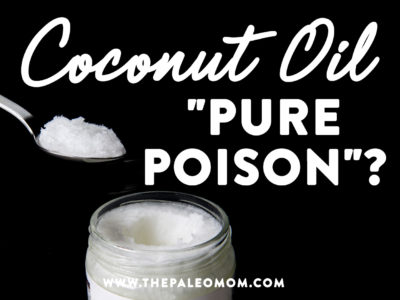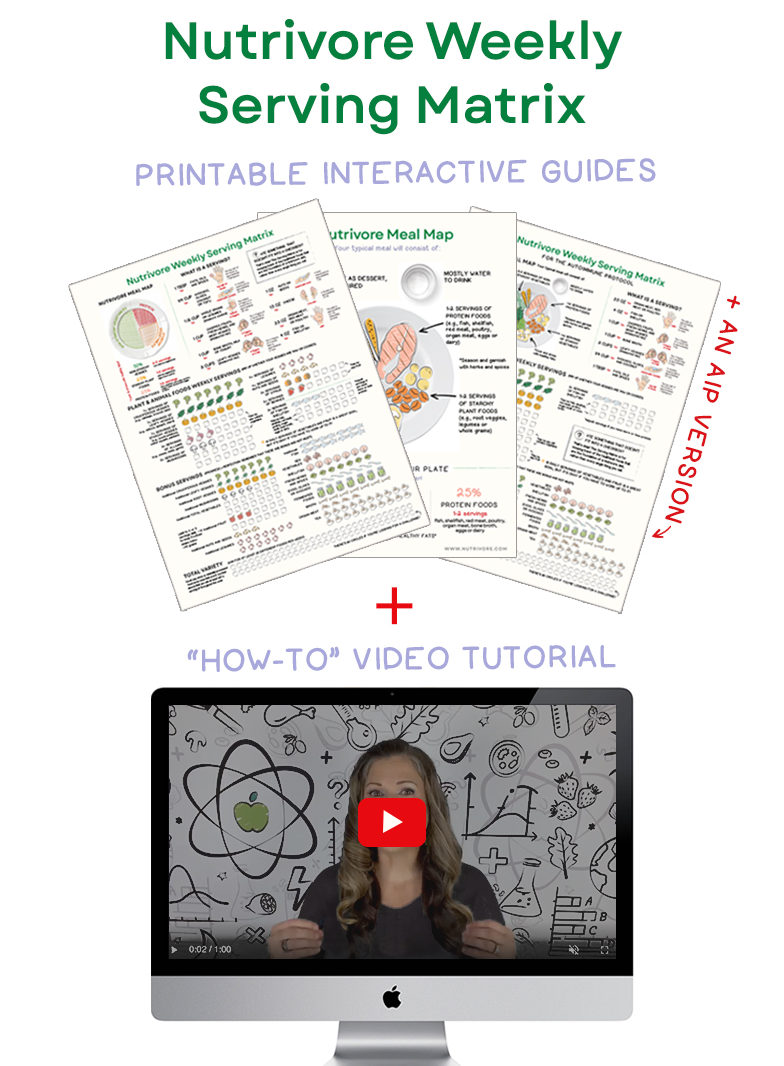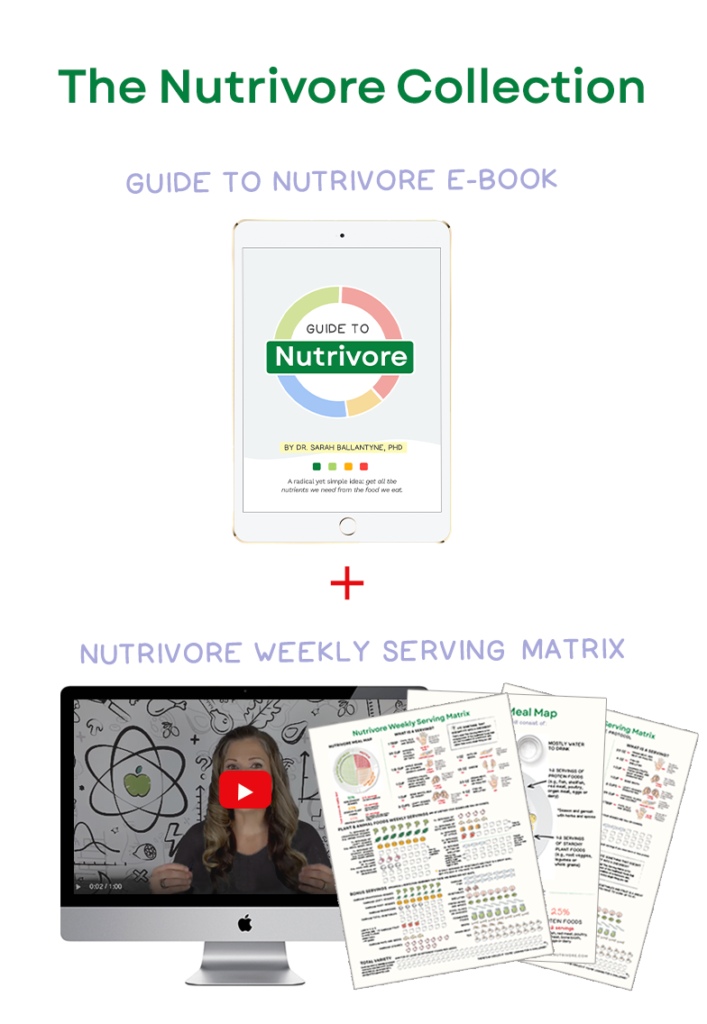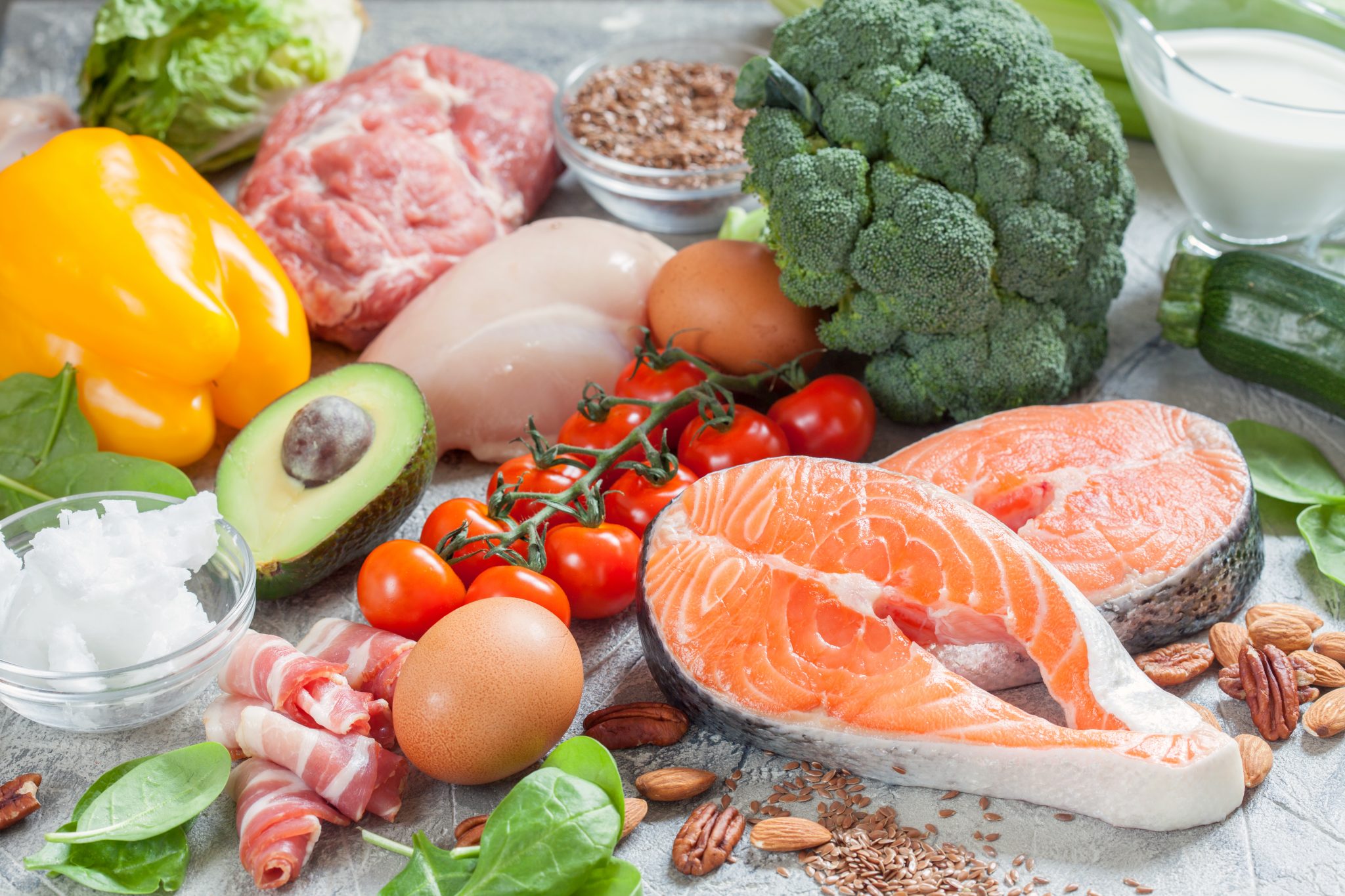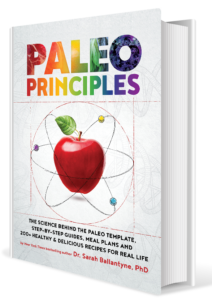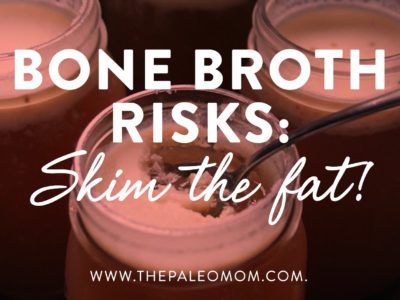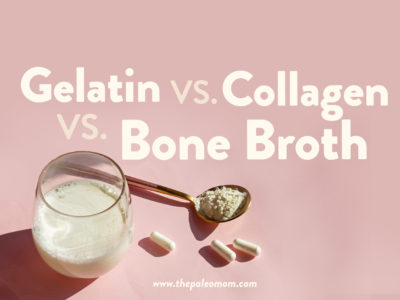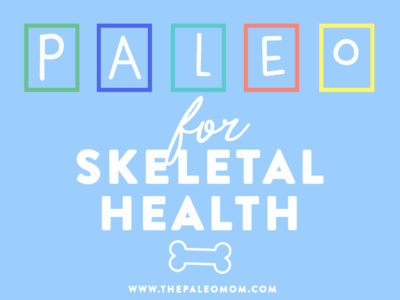After Harvard professor Karin Michels’ presentation called “Coconut Oil and Other Nutritional Errors” went viral on YouTube last week, dozens of media outlets have taken up the mantle to decry coconut oil as “pure poison”. The myopic view of coconut oil as harmful due to its high saturated fat content not only ignores the very real biological differences between medium-chain and long-chain dietary saturated fats, but is also refuted by recent, well-designed, human studies that show quite conclusively that coconut oil does not increase cardiovascular disease risk.
Table of Contents[Hide][Show]
So, let’s dig into it.
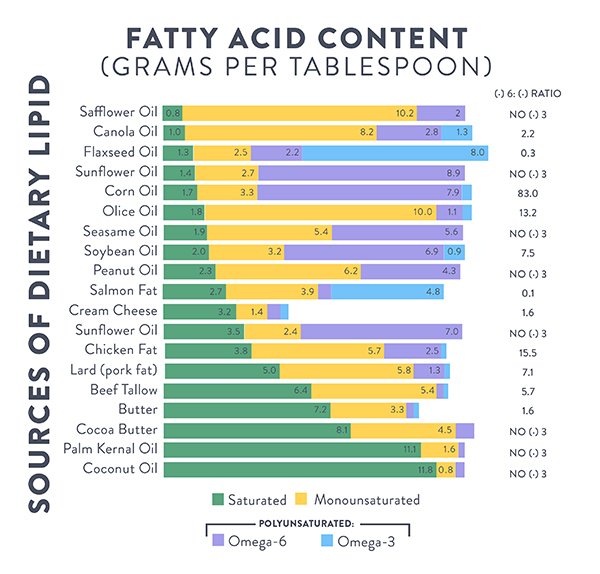 Fat Composition of Coconut Oil
Fat Composition of Coconut Oil
Coconut oil is made from the kernel or meat of coconuts, species Cocos nucifera. It is mainly composed of saturated fats (hence all the controversy, see also Saturated Fat: Healthful, Harmful, or Somewhere In Between?), with 82% of its total fat content being various saturated fatty acids.
However, the vast majority of these saturated fatty acids are what is called medium-chain triglycerides (MCTs), meaning that the length of the molecule is relatively short (by definition between 6 and 12 carbon atoms long, for more on fats, read What About Fat?). In fact, 63% of the total fat in coconut oil is medium-chain triglycerides (and 48% of the total fat is lauric acid, a 12-carbon saturated fatty acid) and these have some diverse health benefits that set them apart from long-chain saturated fats (those with 14 carbon atoms or more). In comparison, butter is 68% saturated fat but only 11% of the total fat is short or medium-chain triglycerides (31% of the total fat in butter is palmitic acid, a 16-carbon saturated fatty acid).
| Fatty acids in Coconut Oil | Percentage |
| Caprylic saturated C8 | 7% |
| Decanoic saturated C10 | 8% |
| Lauric saturated C12 | 48% |
| Myristic saturated C14 | 16% |
| Palmitic saturated C16 | 9.5% |
| Oleic monounsaturated C18:1 | 6.5% |
| Other (polyunsaturated) | 5% |
Because of its unusually high saturated fat content, coconut oil has a high smoke point (the temperature at which the fat is damaged and begins to smoke) and is mostly solidified at room temperature (its melting point is about 74F). Likewise, coconut oil stays fresh without rancidifying for quite some time, as the saturated fat content is less likely to spoil.
Benefits of MCTs
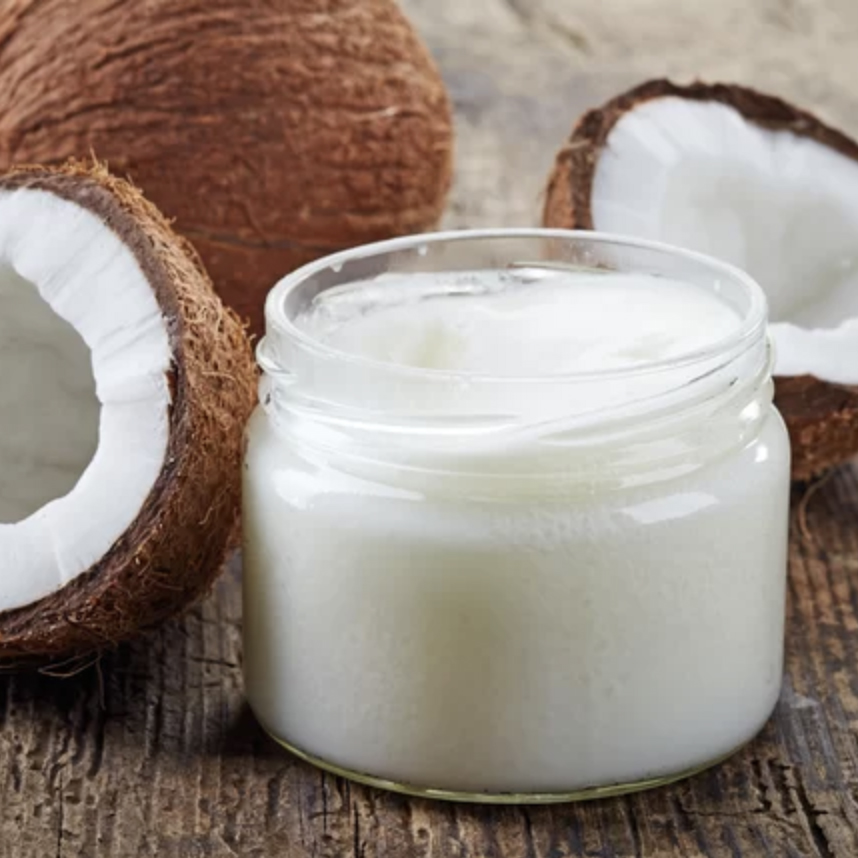 You’ve probably heard about the benefits of MCTs before. The reason that they are touted as a miracle energy source is because they don’t require bile salts to be absorbed in the small intestine (being passively absorbed, they enter the bloodstream very quickly, and can even be easily digested by people without a gallbladder) after which they are rapidly converted into ketone bodies by the liver. Ketone bodies are water-soluble molecules normally produced as intermediates or by-products when the body mobilizes (accesses) fat stores. Ketone bodies (at least two of the three types) can be readily used as fuel by every cell and are the brain’s preferred fuel source in the absence of glucose or in the presence of insulin resistance (which is why supplementing with MCT oil has been shown to be so beneficial in neurodegenerative disorders such as Alzheimer’s disease, sometimes called brain diabetes or type 3 diabetes because it is, at least in part, driven my insulin resistance in the brain).
You’ve probably heard about the benefits of MCTs before. The reason that they are touted as a miracle energy source is because they don’t require bile salts to be absorbed in the small intestine (being passively absorbed, they enter the bloodstream very quickly, and can even be easily digested by people without a gallbladder) after which they are rapidly converted into ketone bodies by the liver. Ketone bodies are water-soluble molecules normally produced as intermediates or by-products when the body mobilizes (accesses) fat stores. Ketone bodies (at least two of the three types) can be readily used as fuel by every cell and are the brain’s preferred fuel source in the absence of glucose or in the presence of insulin resistance (which is why supplementing with MCT oil has been shown to be so beneficial in neurodegenerative disorders such as Alzheimer’s disease, sometimes called brain diabetes or type 3 diabetes because it is, at least in part, driven my insulin resistance in the brain).
Dietary MCTs have been shown to radically reduce the production of a variety of proinflammatory cytokines (meaning they reduce inflammation), increase activity of the histamine-clearing enzyme diamine oxidase (great for histamine intolerance and allergy), increase mucus production in the gut (great for gut barrier health), and support gut-barrier healing (by restoring tight junction proteins to reduce intestinal permeability and by increasing cell-turnover rate in the gut). MCTs also increase the secretion of IgA antibodies in the gut (specifically in the Peyer’s patches), which is considered a marker of a robust immune system (secretory IgA deficiency is linked to increased autoimmune disease risk).
MCTs are also known to promote weight loss (via thermogenesis and impacts on ghrelin, see The Hormones of Hunger) and do not produce metabolites that promote insulin resistance and inflammation like long-chain fatty acids.
Nutrivore Weekly Serving Matrix
An easy-to-use and flexible weekly checklist
to help you maximize nutrient-density.
The Weekly Serving Matrix is very helpful! I’ve been eating along these lines but this really helps me know where to focus vs. which foods serve a more secondary role. It’s super helpful and has taken a lot of worry out of my meal planning. Thanks!
Jan
Coconut oil also has diverse antimicrobial properties, even inhibiting the growth of C. difficile, Streptococcus and Candida.
Coconut oil is also a rich source of vitamin E, phytosterols and polyphenols. (And, if you’re getting your coconut fat from a whole coconut product like coconut butter, you’re also getting manganese, copper, iron, selenium, calcium, magnesium, phosphorous, potassium, zinc to a lesser degree, vitamins B1, B2, B3, B5, B6, B9 and C. Plus coconut is a great source of fiber, including containing quite a lot of inulin fiber, a highly-fermentable soluble fiber that beneficial bacteria in our guts love! Inulin fiber is one of the most heavily studied functional fibers. See What Is Fiber and Why Is it Good?, The Many Types of Fiber and Soluble vs. Insoluble Fiber)
As I mentioned, 62% of the fat in coconut oil is MCTs. 6.5% of the fat in coconut oil is from oleic acid, the same heart-healthy fatty acid that makes olive oil so famous (see 3 Reasons Why Olive Oil is Amazing and Olive Oil Redemption: Yes, It’s a Great Cooking Oil!). That does leave about 32% of the fat in coconut oil being less healthy saturated and polyunsaturated fatty acids, so does this balance out the benefits or even negate them completely? Do MCTs, despite other health benefits, increase cardiovascular disease risk factors like some other dietary fats? Fortunately, the answer seems to be no!
Coconut Oil and Cardiovascular Disease Risk
The main argument against coconut oil is that, since it is rich in saturated fats (82% of its fat is saturated), it increases cardiovascular disease risk and should be avoided.
First, let’s acknowledge that there are some legitimate reasons to keep saturated fat intake moderate, as detailed in Saturated Fat: Healthful, Harmful, or Somewhere In Between? Tl;dr? High saturated fat intake skews the gut microbiome towards unfavorable strains, increases endotoxin translocation (it helps transport this highly inflammatory bacterial toxin into the bloodstream), erodes sleep quality, and impairs endothelial function (the cells that line every blood vessel in our body). Hunter-gatherer intakes of saturated fat range between 10% and 15% of total calories, averaging at 13%. That’s probably a good place for all of us to aim (although, if you have a copy or two of ApoE4, you might want to dial that down to 10%, see Genes to Know About: ApoE and The Paleo Diet for Cardiovascular Disease).
So, how easy is it to exceed 15% of total calories form saturated fat if we’re in love with coconut oil? Actually, pretty easy. A mere 3 tablespoons of coconut oil will get you to 15% of total calories from saturated fats, assuming a 2000 calorie a day diet. That would leave no room for other sources of saturated fats like dairy fat, meat and poultry. This is of course, assuming that all of the saturated fats in coconut oil are a problem. We just don’t know if all of the effects of long-chain saturated fatty acids apply to medium chain triglycerides. But, are they?
In a 2018 paper, healthy adults age 50 to 75 were randomly assigned to consume 50 grams daily of either extra virgin coconut oil, extra virgin olive oil or unsalted butter for 4 weeks (either by incorporating into their usual diet or consuming as a supplement). Coconut oil significantly raised HDL (good) cholesterol with no differences in LDL compared with olive oil. Coconut oil did also did not differ significantly from olive oil in terms of the total cholesterol to HDL or non-HDL ratio. And, coconut oil was far superior to butter for nearly all measurements.
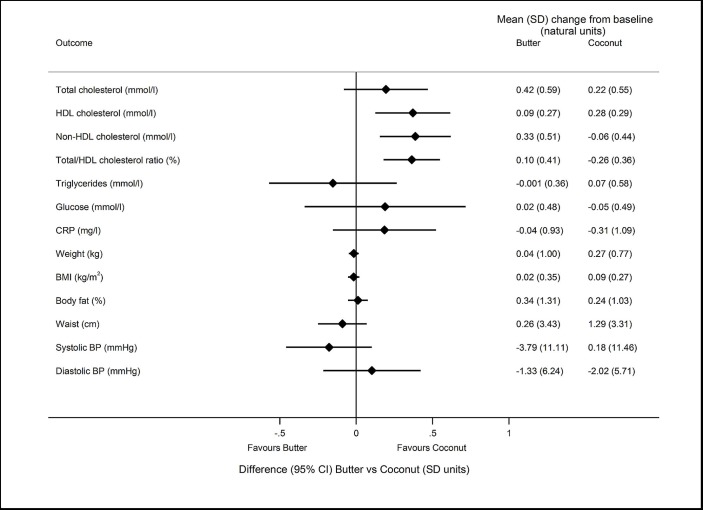
And coconut oil was comparable to olive oil for most measurements, and superior to olive oil in terms of boosting HDL cholesterol and decreasing CRP (a blood borne marker of inflammation).
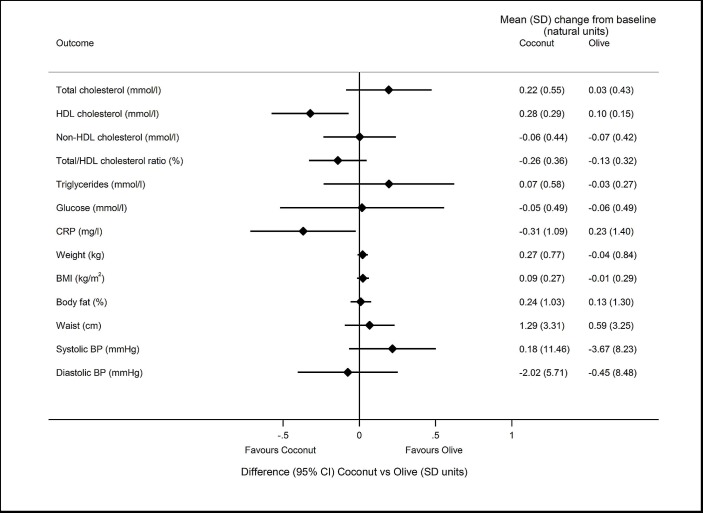
A 2016 study conducted in patients with coronary artery disease evaluated the impact of using coconut oil or sunflower oil as the primary cooking oil. Over the 2-year follow-up period, coconut oil had absolutely no effect on serum cholesterol, vascular function nor on the number of cardiovascular events reported compared to controls.
It’s worthy to note that these studies both used a high-quality virgin or extra virgin coconut oil (these two terms mean the exact same thing). This means the oil is not refined, bleached or deodorized and its expeller pressed or cold pressed.
Animal studies support these findings and provide some insight into how virgin coconut oil confers its benefits. Similar to humans, virgin coconut oil increases HDL cholesterol, but in rodent studies it also reduces total cholesterol, triglycerides, phospholipids, LDL, and VLDL cholesterol levels. Lauric acid (48% of the total fatty acids in coconut oil) reduces blood pressure, a major cardiovascular disease risk factor, and lowers oxidative stress. The polyphenols in virgin coconut oil are uniquely beneficial to cardiovascular health via their antioxidant activities, preventing LDL oxidation and reducing carbonyl formation.
All-in-all, the majority of scientific studies show the opposite of what you’d expect if you assume that all saturated fats have equal effects on cardiovascular disease risk factors. Coconut oil, especially high quality coconut oil, does not increase cardiovascular disease risk factors—if anything, it decreases them!
Take-Home Message
It’s almost certainly still important to moderate saturated fat intake, even when enjoying coconut oil as a healthful source. The Kitavans have the highest saturated fat intake of all hunter gatherers due to their high coconut intake, but they’re still only at about 17% of total calories (see Saturated Fat: Healthful, Harmful, or Somewhere In Between?). So, enjoy some coconut oil but mix it up with other healthful fats (see Which Fats Should You Eat?)
It’s also really important to get your coconut oil from a responsible source, as the coconut industry is wreaking havoc on countries with high production rates. Also, because the studies consistently show benefits to virgin (unrefined) coconut oil (attributable to the polyphenol, phytosterol and vitamin E content), it’s best to stick to high quality coconut oil. Make sure to get organic, extra virgin coconut oil from a good company that is using sustainable practices. My Go-To brand is Tropical Traditions.
Citations
Alves NF, de Queiroz TM, de Almeida Travassos R, Magnani M, de Andrade Braga V. Acute Treatment with Lauric Acid Reduces Blood Pressure and Oxidative Stress in Spontaneously Hypertensive Rats. Basic Clin Pharmacol Toxicol. 2017 Apr;120(4):348-353. doi: 10.1111/bcpt.12700. Epub 2017 Jan 5.
Babu AS, Veluswamy SK, Arena R, Guazzi M, Lavie CJ. Virgin coconut oil and its potential cardioprotective effects. Postgrad Med. 2014 Nov;126(7):76-83. doi: 10.3810/pgm.2014.11.2835. Review.
Famurewa AC, Ejezie FE. Polyphenols isolated from virgin coconut oil attenuate cadmium-induced dyslipidemia and oxidative stress due to their antioxidant properties and potential benefits on cardiovascular risk ratios in rats. Avicenna J Phytomed. 2018 Jan-Feb;8(1):73-84.
Famurewa AC, Ejezie FE. Polyphenols isolated from virgin coconut oil attenuate cadmium-induced dyslipidemia and oxidative stress due to their antioxidant properties and potential benefits on cardiovascular risk ratios in rats. Avicenna J Phytomed. 2018 Jan-Feb;8(1):73-84.
Famurewa AC, Ekeleme-Egedigwe CA, Nwali SC, Agbo NN, Obi JN, Ezechukwu GC. Dietary Supplementation with Virgin Coconut Oil Improves Lipid Profile and Hepatic Antioxidant Status and Has Potential Benefits on Cardiovascular Risk Indices in Normal Rats. J Diet Suppl. 2018 May 4;15(3):330-342. doi: 10.1080/19390211.2017.1346031
Famurewa AC, Ekeleme-Egedigwe CA, Nwali SC, Agbo NN, Obi JN, Ezechukwu GC. Dietary Supplementation with Virgin Coconut Oil Improves Lipid Profile and Hepatic Antioxidant Status and Has Potential Benefits on Cardiovascular Risk Indices in Normal Rats. J Diet Suppl. 2018 May 4;15(3):330-342. doi: 10.1080/19390211.2017.1346031. Epub 2017 Aug 17.
Fernando WM, et al. The role of dietary coconut for the prevention and treatment of Alzheimer’s disease: potential mechanisms of action. Br J Nutr. 2015 Jul 14;114(1):1-14. doi: 10.1017/S0007114515001452. Epub 2015 May 22. Review.
Galluser M, et al. Comparison of different lipid substrates on intestinal adaptation in the rat. Gut. 1993 Aug;34(8):1069-74.
Huang CB, Alimova Y, Myers TM, Ebersole JL. Short- and medium-chain fatty acids exhibit antimicrobial activity for oral microorganisms. Arch Oral Biol. 2011 Jul;56(7):650-4. doi: 10.1016/j.archoralbio.2011.01.011. Epub 2011 Feb 17.
Kamisah Y, et al. Cardioprotective effect of virgin coconut oil in heated palm oil diet-induced hypertensive rats. Pharm Biol. 2015;53(9):1243-9. doi: 10.3109/13880209.2014.971383. Epub 2015 Apr 8.
Khaw KT, et a. Randomised trial of coconut oil, olive oil or butter on blood lipids and other cardiovascular risk factors in healthy men and women. BMJ Open. 2018 Mar 6;8(3):e020167. doi: 10.1136/bmjopen-2017-020167.
Kono H, et al. Medium-chain triglycerides enhance secretory IgA expression in rat intestine after administration of endotoxin. Am J Physiol Gastrointest Liver Physiol. 2004 Jun;286(6):G1081-9.
Kono H, et al. Medium-chain triglycerides inhibit free radical formation and TNF-alpha production in rats given enteral ethanol. Am J Physiol Gastrointest Liver Physiol. 2000 Mar;278(3):G467-76.
Kono H, et al. Protective effects of medium-chain triglycerides on the liver and gut in rats administered endotoxin. Ann Surg. 2003 Feb;237(2):246-55.
Lyte JM, Gabler NK, Hollis JH. Postprandial serum endotoxin in healthy humans is modulated by dietary fat in a randomized, controlled, cross-over study. Lipids Health Dis. 2016 Nov 5;15(1):186.
McCarty MF, DiNicolantonio JJ. Lauric acid-rich medium-chain triglycerides can substitute for other oils in cooking applications and may have limited pathogenicity. Open Heart. 2016 Jul 27;3(2):e000467. doi: 10.1136/openhrt-2016-000467. eCollection 2016.
Nagashree RS, et al. Effect of a Diet Enriched with Fresh Coconut Saturated Fats on Plasma Lipids and Erythrocyte Fatty Acid Composition in Normal Adults. J Am Coll Nutr. 2017 Jul;36(5):330-334. doi: 10.1080/07315724.2017.1280713. Epub 2017 May 16.
Nevin KG, Rajamohan T. Beneficial effects of virgin coconut oil on lipid parameters and in vitro LDL oxidation. Clin Biochem. 2004 Sep;37(9):830-5.
Panchal SK, Carnahan S, Brown L. Coconut Products Improve Signs of Diet-Induced Metabolic Syndrome in Rats. Plant Foods Hum Nutr. 2017 Dec;72(4):418-424. doi: 10.1007/s11130-017-0643-0.
Rial SA, Karelis AD, Bergeron KF, Mounier C. Gut Microbiota and Metabolic Health: The Potential Beneficial Effects of a Medium Chain Triglyceride Diet in Obese Individuals. Nutrients. 2016 May 12;8(5). pii: E281. doi: 10.3390/nu8050281. Review.
Shilling M, et al. Antimicrobial effects of virgin coconut oil and its medium-chain fatty acids on Clostridium difficile. J Med Food. 2013 Dec;16(12):1079-85. doi: 10.1089/jmf.2012.0303.
Vijayakumar M, et al. A randomized study of coconut oil versus sunflower oil on cardiovascular risk factors in patients with stable coronary heart disease. Indian Heart J. 2016 Jul-Aug;68(4):498-506. doi: 10.1016/j.ihj.2015.10.384. Epub 2016 Jan 13.
Zhong W, et al. Dietary fat sources differentially modulate intestinal barrier and hepatic inflammation in alcohol-induced liver injury in rats. Am J Physiol Gastrointest Liver Physiol. 2013 Dec;305(12):G919-32. doi: 10.1152/ajpgi.00226.2013. Epub 2013 Oct 10.

